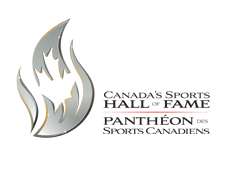Home | Major Sporting Events | Pan American Games
1967 Pan American Games - Winnipeg
PreviousNext
Canadians enthusiastically invited the world to celebrate their national centennial in 1967 by hosting impressive international spectacles that included Expo '67 in Montreal and the Pan American Games in Winnipeg. Organizers believed the 1967 Pan American Games were a 'giant magnifying glass' that presented Canada to the attention of the world as a young, confident nation with a bright future. It was promoted as the largest international multi-sport event ever held on Canadian soil, with elite athletes representing 29 nations across North, Central and South America, as well as the Caribbean competing in 21 different high-calibre events. Bolstered by unprecedented outpourings of national pride and unity and inspired by the centennial landmark, Canadian athletes placed second overall, winning 11 gold, 36 silver, and 43 bronze medals.
Excelling in athletics, Andy Boychuk became the first Canadian ever to win the marathon at the Pan American Games, while the electrifying sprinter Harry Jerome took gold in the 100 metre race. Canadians were also a force to contend with in judo, where Doug Rogers won the silver medal in heavyweight competition and gold in the open weight class. In aquatics, the self-confident pride Canadians expressed as host nation of the 1967 Pan American Games was perhaps best personified by the versatile young swimmer Elaine Tanner.
Born in Vancouver, Elaine Tanner began competing when she was 13 years old. Standing only five feet tall and affectionately nicknamed 'Mighty Mouse', she was powerfully motivated by personal pride and confidence in her abilities. Refusing to let her diminutive height place limits on her ambitions, she explained "in my mind...I set myself out a goal. I knew what I could do and nothing could stop me...I just focused that desire and the strength and the confidence I had in my ability to spur me on to...greater heights." Mentored by celebrated Canadian coach Howard Firby, she was a notoriously fast competitor in the pool.
At the 1967 Pan American Games in Winnipeg, Tanner won gold medals in the 100 metre and 200 metre backstroke, setting new world records in both events. She also won three silver medals in the 100m butterfly, 400 metre medley relay, and 400 metre freestyle relay. Growing tired midway through the 200 metre backstroke, Tanner's strength and resolve was renewed with the encouragement of Canadian spectators, who had grown wild with excitement when she entered the third length of the race ahead of world record time. She recalled the jubilant cheering of the crowd "made me almost airborne and I remember picking up my speed" to reach the finish line in first place. In turn, as Elaine flashed her brilliant smile on her way to the podium, the crowd spontaneously serenaded the swimmer with a rousing rendition of "Ca-Na-Da", an infectiously fun song that had become the unofficial popular anthem of Canada's centennial celebrations in 1967.
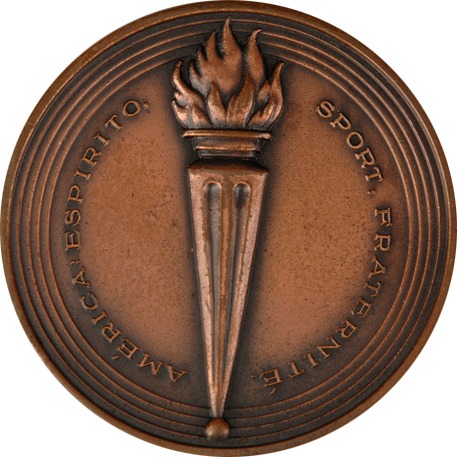
Colonel John Jack Davies saw his first Olympic Games in 1900 in Paris, France. Over a lifetime devoted to amateur sport, he was an active part of Canada's participation at ten Olympic Games, nine Commonwealth Games and two Pan-American Games, including the 1967 Pan American Games in Winnipeg. This medal is from the 1967 Games.
Collection: Canada's Sports Hall of Fame
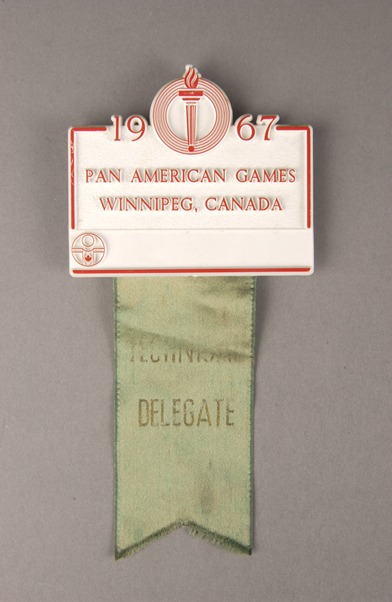
The 1967 Pan American Games set precedents for the time. They were they best attended, attracted the most athletes and set many new world records. The most important precedent was the use of women as umpires and officials. International history was made when Marilyn Redekop was the umpire for the men's volleyball match between Canada and Mexico. This Technical Delegate's badge included the logo for the Games.
Collection: Canada's Sports Hall of Fame
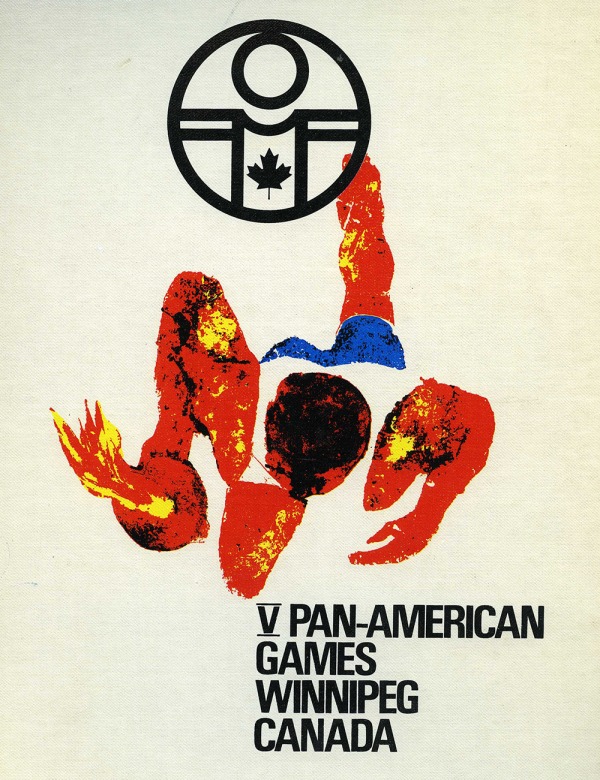
The 1967 Pan American Games showcased the hospitality of the people of Winnipeg. As quoted in this booklet: "We wanted all visitors to feel so welcome that they would leave our Games with pleasant memories of an athletic event well-run under excellent conditions amidst friendly and hospitable people."
Collection: Canada's Sports Hall of Fame
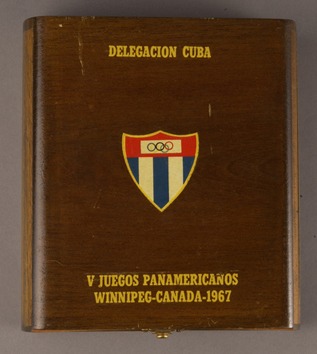
The international aspect of the Pan American Games is reflected in its motto "America-Espirito-Sport-Fraternite" and in its four official languages of English, Spanish, French and Portuguese. Winnipeg provided language translations for the athletes, available through a phone call to the Athletes Village. This box, gifted to Bill Simpson, President of the Canadian Soccer Federation by the Cuban delegation, includes their National Olympic Committee logo.
Collection: Canada's Sports Hall of Fame
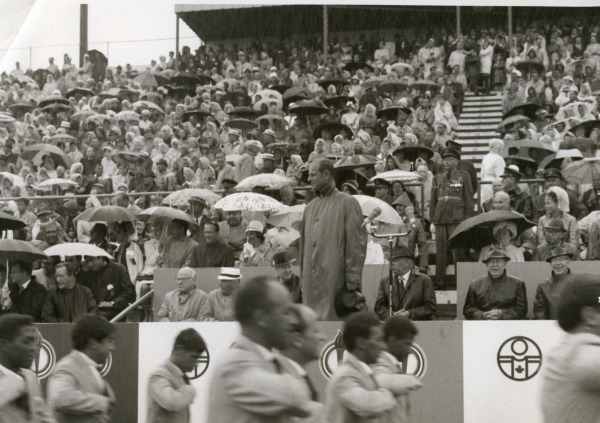
"On behalf on the Queen, who sends her greetings, I have the honour to declare the 5th Pan-American Games open". Prince Philip officially opened the 1967 Games in the midst of a rain storm that ended as the doves were released.
Collection: Canada's Sports Hall of Fame
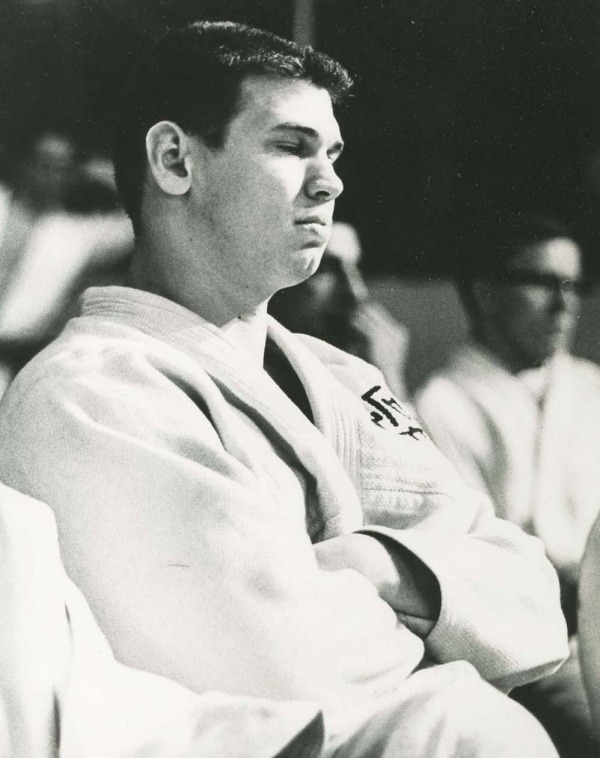
Doug Rogers went to Japan in 1960 at the age of 19 to specifically train in judo, having mastered all that he could in Canada. Committing himself to training full time with one of Japan's masters he showed his passion and determination to become a top judoku. In 1964 he was invited by the Canadian Olympic Committee to compete at the 1964 Olympic Games, where judo was to be included for the first time.
Collection: Canada's Sports Hall of Fame
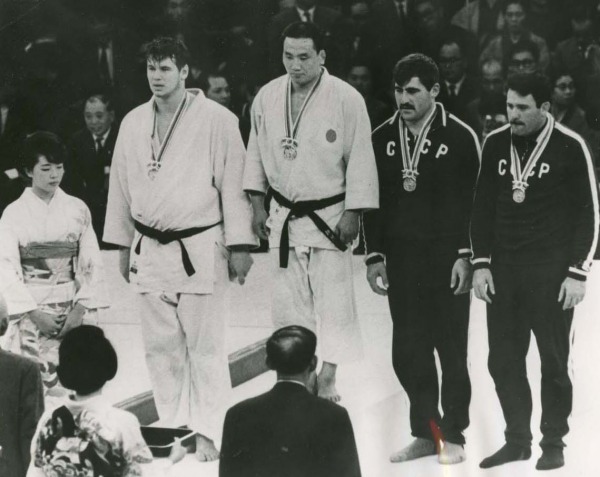
Doug Rogers became Canada's first Olympic medalist in judo when he won the silver medal at the 1964 Olympic Games in Tokyo in a tight match against his Japanese opponent. He continued to show his excellence at this sport with medals at the Pan American Games, the World Championships and the 1971 Canada Games.
Collection: Canada's Sports Hall of Fame
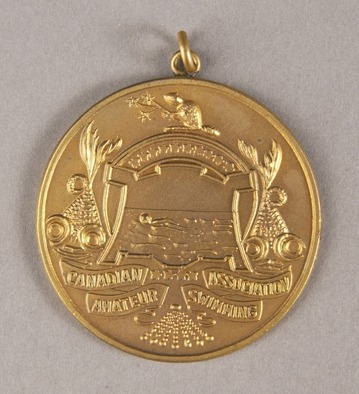
Elaine Tanner's engaging personality made her a household name in Canada and earned her the nickname "Mighty Mouse". Her two world records at the 1967 Pan American Games showed her excellence in her sport. She was the youngest recipient of the Lou Marsh Award as Canada's top athlete in 1965.
Collection: Canada's Sports Hall of Fame
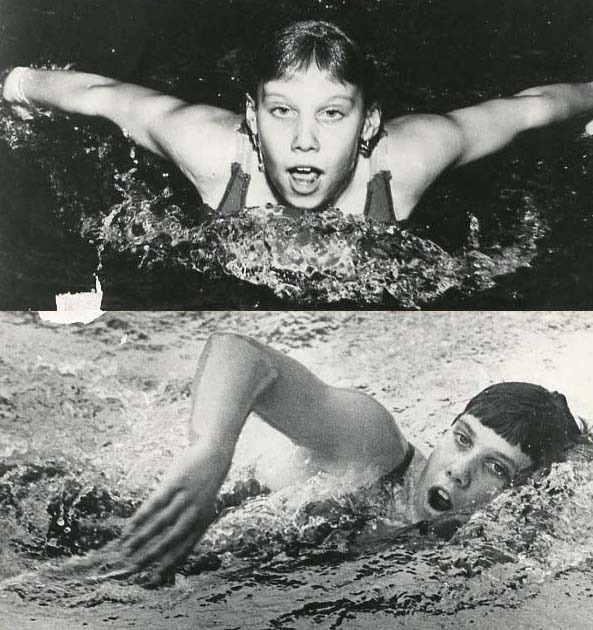
Elaine Tanner is one of the best female swimmers in Canadian history. She won four gold medals at the 1966 Commonwealth Games, five medals at the 1967 Pan American Games and three medals at the 1968 Olympic Games in Mexico City. She was a versatile swimmer, excelling in all strokes. Her strong sense of commitment and competitive nature brought her recognition on the world scene.
Collection: Canada's Sports Hall of Fame
Previous Next
